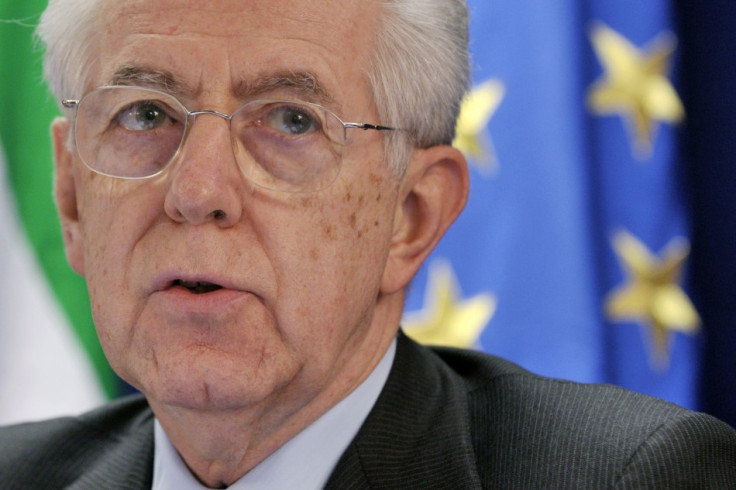Italy at the Polls: Mario Monti's Short-Term Success and Long-Term Problems

After Italy's prime minister Silvio Berlusconi was bundled unceremoniously out of power amid a lurid sex scandal in November 2011, technocrat Mario Monti was parachuted into government as the new leader to help Italy sort out its severe debt crisis.
However, after receiving plaudits from around the globe for his tough take on austerity, Monti resigned on 21 December after the passing of his second budget and will remain as a caretaker only until a new government is formed.
European partners and investors were disappointed as many thought his departure signalled the end of his reformation of the country's beleaguered economy.
However, in the general election, he is head of a group that adopts his programme as a fully-fledged politician. It could give him a chance to transform Italy and tackle the country's embedded long-term problems.
When Monti first took office, he had one of the toughest jobs in the eurozone as he had to try to revive its third largest economy in the face of the longest and deepest recession Italy had experienced in 20 years.
Where other governments failed, he at least bolstered market confidence that economic reform was a possibility after he imposed strict austerity policies and brought borrowing back under control.
Monti was ceremoniously dubbed "Super Mario" by his peers after essentially saving Italy and the euro with major support from the European Central Bank's (ECB) decision to pump liquidity into the banking system.
Unemployment, tax rises and bank scandals
But 15 months into his tenure, Italy still faces problems in the long-term. Some of those problems with the deepest roots have not yet been solved.
Record unemployment, especially among the young, tax increases and the spate of banking scandals hitting the country's largest lenders have all pushed the upcoming elections into uncertainty.
Reining in public spending and installing reform were new ideas for the Italian government and it became obvious that Monti had relied solely on a tax increase to fuel changes.
That tax increase ended up contributing to a deeper recession and exacerbated Italy's main problem which has been rumbling for 15 years: growth, or rather the lack of it.
That is set to undo a lot of his short-term successes in turning around Italy's economy and has essentially put many of already delayed reforms on the backburner.
"Expectations of Italy's next government are modest - the chances of Italy's next government being a poster child of reform are slim. Even soothing talk of future reform wouldn't save Italian bondholders if Mr [Mario] Draghi fell under a bus," said ex-World Bank official Simon Evenett, who is now professor of international trade and economic development at the University of St Gallen.
Standard & Poor's said that Italy might lose momentum on reforms that are vital to revive growth if no clear winner emerges from the election.
"We believe that a risk exists that after the elections there may be a loss of momentum on important reforms to improve Italian growth prospects," the credit ratings agency said.
"The implementation of measures to boost Italy's medium-term growth prospects depends on the strength of the next government's mandate in both houses of parliament."
© Copyright IBTimes 2025. All rights reserved.






















